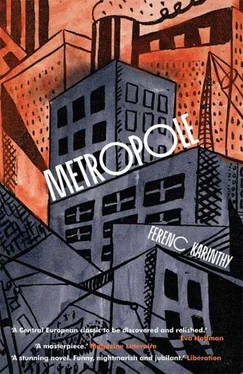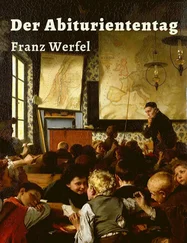‘Taxi! Taxi… taxi? ’
The man blinked at him stupidly, continuing to salute him, tipping his gold-braided hat and looking at him with those tiny eyes in his fat face before politely opening the swing door for him. When Budai leaned closer and shouted what he wanted practically into his face, the doorman merely muttered:
‘ Kiripudu labadaparatchara… patarashara… ’
Then he saluted once more and pushed the door open again as if he were no more than a robot able to choose between only two options. In the meantime others were pushing their way into the hotel, bumping into them as they jostled at the door. Budai didn’t want to block the way any longer and was worried in case his temper got the better of him and he actually punched the idiot, so he returned to the kerbside. He had no better luck trying to wave down a taxi and had begun to wonder whether the red flash at the side of those grey cars actually meant that they were taxis. He had all but given up when one at which he had made only a vague, uncertain gesture, suddenly stopped right in front of him. The driver leaned out and asked him something with his mouth full, something to the effect as to where he would like to go, thought Budai. He quickly tried to explain, making flapping motions with his arm to indicate a plane, then imitating the pistons of a railway engine, even adding the characteristic choo-choo sound. The driver laughed and shook his head, though whether that was because he didn’t understand or because he had no intention of taking him to those places was not clear. Meanwhile other vehicles were stuck behind him impatiently sounding horns, revving engines, creating ever more of a bottleneck. The next lane was so busy they could not get round the stationery vehicle. Frightened that he would lose this opportunity, Budai brought out a large banknote and waved it in front to him. The tone of the driver’s reply was that he had been ordered elsewhere, or that he was at the end of his shift and was on his way to the garage. But all the while the never-ending traffic behind him was growing ever louder, ever more impatient, the horns of the jammed cars blaring furiously, so the taxi driver eventually turned the key and put his foot down on the gas. In his despair Budai drew out another note and pushed it through the window but the taxi was moving by now in the dense traffic so the money was swept from his hands into the cab where it remained and there was no way of getting it back.
For a minute or two Budai stood stock still, quite paralysed by his latest failure, though maybe it was not a failure, and what he took to be a whole chain of misfortunes was simply the rule here, for someone like him at least, someone who did not know the language. But eventually he pulled himself together and decided that one should be able to find a station even without a taxi. He was only sorry to have lost his money, those two notes of whose value he could not be certain though, on the basis of what he had learned so far, it would not be negligible.
Most of the shops were shut, even the groceries, but the metro was as busy as ever. By the time he got to the steps in the round little traffic island he had worked out how he might achieve his goal. He pushed his way over to the large map again, it being the only fixed point of certainty he had so far been able to cling to. Here he only had to identify his position and could then move forward. He looked for intersections between lines, those circled stations that appeared more important, since in every major city the metro service was directly connected to the main railway routes. He reasoned that the names of metro stations at the main terminals might comprise two or more words, and that one or other of the stations might be like the Paris terminals, Gare de l’Est, Gare du Nord, Gare de Lyon, and so forth. He was constantly jostled as he stood there, often being shoved right away from the map but time and again he steered his way back. With great difficulty he located a few of these two-and-more-word stations, the last word of which was the same, or pretty nearly the same in every case, the difference probably being merely grammatical. He made note of a number of them, copying the unfamiliar characters. The first and nearest of them was on the yellow line.
He had to stand in a queue at the ticket window — everyone was paying with the same kind of coin — and then at the down escalator since the crowd descending had swollen. Once down there he was carried along a confusion of corridors, the crowd swirling this way and that, past placards and posters, round bends, past crossings and adjoining tunnels, coming to yet more stairs that led down first, then up again. Coloured arrows pointed out different routes, electric signs with blue, green, red, black and yellow writing. Budai followed the last of these though he lost track of it at one point, the crowd possibly having swept him past an opening, and it was only after a good fifteen minutes of searching that he found another one. He was careful this time, paying absolute attention, and slowly the other colours disappeared, leaving only the yellow and there he was on the platform with the rumble of trains approaching and departing and the draught of busy tunnels. He was only concerned not to set off in the wrong direction, so he took out his notebook, looked up the name of the station he was seeking and had written down, and scanned the list of stations by the two arrows to see which of them contained it.
The train arrived and the crowd rushed to get on board, struggling through the equally dense crowd getting off, a chaos of swirling bodies at each door. Budai managed to squeeze his way on just in time before the black conductor blew his whistle. It was close and hot on the train: he had thought to ask someone for information, to explain or draw some image of where he wanted to get to, but the passengers were so tightly packed he could hardly raise his hands and in any case he was prevented by the constant lurching, shoving and fighting for position between those who meant to get out and those getting on. At least he didn’t have to worry about missing his station since there were a number of maps on the walls showing where he was at any one time and the stations to come, so he easily found the three-word station whose name he had noted down, and correctly anticipated where he had to leave the very fast, sharply braking train whose jerky movement resulted in passengers constantly landing in each other’s laps.
There was the same confusion of corridors here too so he scurried and stumbled about for a long time before realising that it was the bigger white arrows that led to the exit and followed them up another infinitely long set of escalators… He arrived in a wide square. A fine, cold rain was quietly falling, the sky just as murky here, just as impenetrable. Nor was the crowd thinner. He set out without any sense of where he was going and soon wandered into a market or shopping centre. There were people selling things everywhere, on stalls, at tables, even directly from the pavement. Salesmen were shouting, music playing, loudspeakers blaring. It was mostly second-hand clothes for sale as far as he could see. The crowd carried him slowly along as they drifted round the square, past furniture stores, chandeliers, fabrics, threadbare fur coats, dinner services, carpets, junk, antiques, factory rejects, toys, balls, great piles of sponges and plastic goods, tubes of various colours and sizes rolled into rings, as well as tyres, hoses and sheets of plate glass. A loud record player was booming in a tent, the shelves inside groaning under the weight of countless records. Budai tried to worm his way through to it, pressing through groups of bystanders in the hope of hearing a familiar tune or discovering a label he could actually read. That might give him something to hang on to, a solution of some sort, one he might be able to use to solve further enigmas. But however he burrowed among the records, going through the whole stock — there were other potential customers exploring it — he found nothing familiar, and only the same incomprehensible writing on all the labels. The record player continued booming and someone right next to him was continually blowing a cracked, rasping trumpet, the same two notes all the time, a fat man in a stripy sailor-top, looking a little like a Chinese ship’s cook. It was insufferable. He abandoned the search and moved on.
Читать дальше












